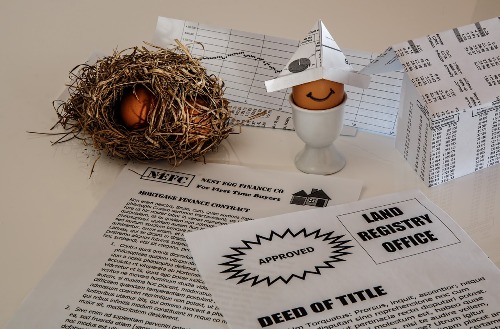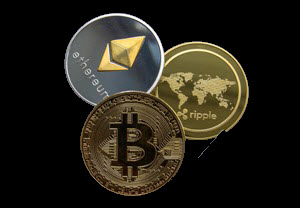
Crypto Home Loans: No Bank Involved
The Traditional Home Loan

Here is a potential use case for the blockchain that almost everyone can relate to.
Have you ever borrowed money to buy a home?
What a rigmarole!
Involving:
- The bank or other lending institution, who require:
- A lengthy application process, requiring all your personal and financial details. Anything deemed in error or incomplete on the application form will cause it to be rejected. They can be sufficiently complicated to require expert (expensive) help to complete
- A non-refundable application fee
- A savings history, preferably with this bank
- Current tax returns
- Proof of income
- Proof of expenses
- Other stuff, depending on the bank, and all influenced by whether the government of the day is encouraging or discouraging home lending.
- A solicitor or conveyancer to draw up the contract of sale, mortgage document and other legal contracts.
- A broker to oversee all of the above. Not essential, but a good broker can often get a better deal for you. They will, however, be biased towards certain lenders, namely the ones who pay the best commissions!
- An obligation to set up an automatic deduction from a bank account to repay the mortgage.
- An obligation to insure the property for its full value and a requirement to prove the insurance, often every year.
The Crypto Home Loan

As far as I'm aware, these don't exist yet, so this article on how they might look is pure speculation on my part. I could be as far off the mark as the people who speculated, when the personal computer (PC) was released in 1981 that the main use for a personal computer would be for storing recipes! The came word processors, spreadsheets, the internet, email and all the other stuff that none of them were predicting, that turned the PC into a vital part of every home's essential equipment. Often more than one PC as well.
The same will happen with blockchain usage.
But first, prices (exchange rates, really) have to stabilize.
Let's assume that one bitcoin stabilizes at the equivalent of $100,000 of today's fiat US dollar, which means 1 Satoshi equates to one tenth of 1 cent. Or perhaps, more usefully, 1,000 Satoshi to the dollar.
Let's stick with round figures to make the concept simpler. You want to buy a house that's been advertised for 10 bitcoin.
You have savings in your bitcoin wallet of 6 bitcoin and you want to buy the house on a 20% deposit, so you need to borrow 8 bitcoin. You'll still have 4 bitcoin in your wallet. The vendor has a smart contract on the Ethereum blockchain. You agree to buy the property subject to finance.
You post your request on the blockchain and get two responses. One from an individual who can lend you 8 bitcoin at an interest rate of 5% and another from a group who pool their resources to make a business of home lending at 3.75%. They also have a smart contract on the Ethereum blockchain that you can peruse. You decide to go with that offer.
You digitally sign both contracts and take possession of the property on the agreed date.
Now I've left out inspecting the property, negotiation on price and interest rate and the possibility of paying a few Satoshi to a smart contract expert to advise you on the contracts but the point is that the whole process is enacted by the parties involved. There are no enablers taking their cut along the way.
It's a brave new world!
